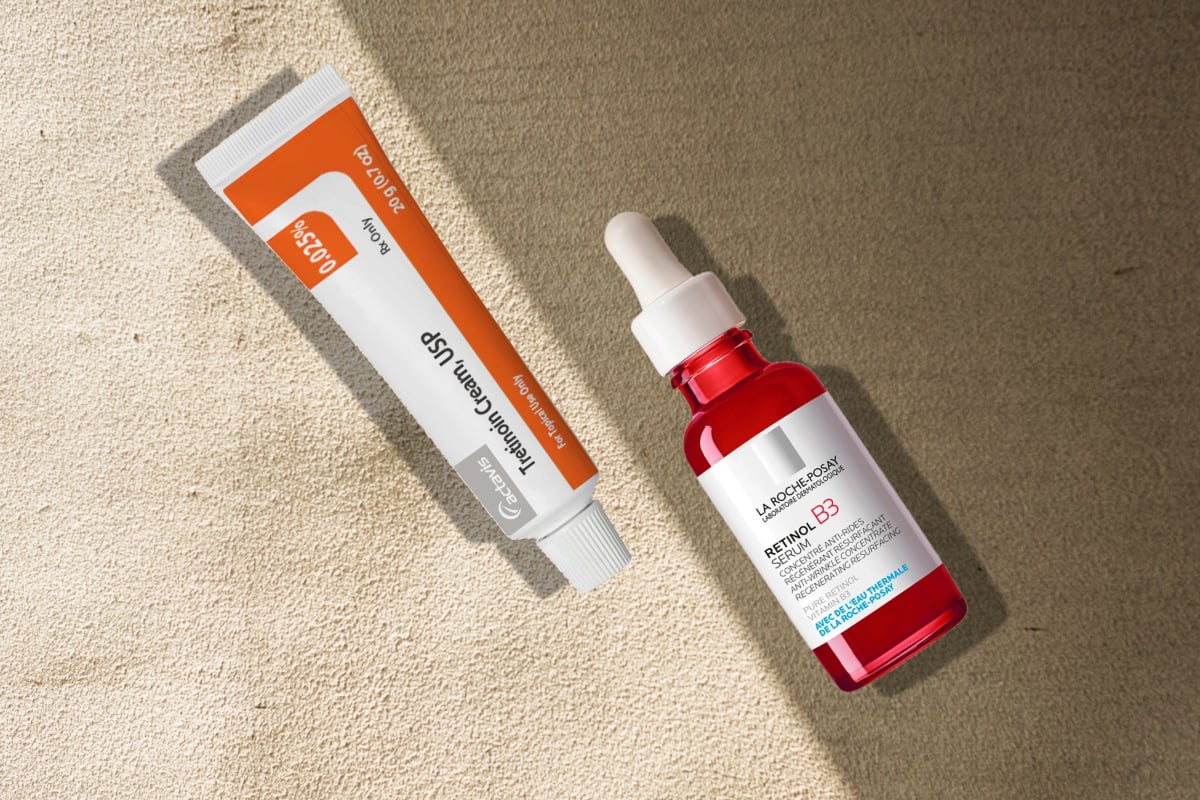Ah, the eyes, the windows to the soul. But what about the skin surrounding them? The one part of your face that can make or break your look. You can try to rock that smokey eye, but if the skin around it looks tired and dull, you’re not fooling anyone. That’s where eye creams come in. But with the endless options out there, it’s easy to feel like you need a PhD in skincare just to pick the right one. Fear not, as we’ve done the heavy lifting for you. We’ve scoured the shelves and dug through the depths of the beauty industry to find the ingredients that truly deliver. From caffeine to hyaluronic acid to good old-fashioned vitamin C, these ingredients are the absolute must-haves in your eye cream, whether you’re looking to erase those raccoon eyes or plump up your fine lines.
Is eye cream a must?
The skin around the eyes is delicate and thin, and it tends to show signs of aging, fatigue, and stress more easily than other parts of the face. It has fewer sebaceous glands and supporting fatty tissue, making it more susceptible to external aggressors and irritants. Eye creams are specifically designed to address these concerns and provide targeted benefits, such as reducing the appearance of crow’s feet, dark circles, and puffiness, as well as improving hydration and firmness.
To sum it up, you’re a good candidate for using a targeted eye cream if you are concerned about how your eye area look and feels. Most people add eye creams to their skincare routine in their mid to late 20s, as that is when the signs of aging begin to appear. So if you fall under this category, it’s worth considering adding an eye cream to your routine.
The best ingredients in eye creams
To put your doubts to rest, here are the best eye cream ingredients that you should never miss in your skincare routine.
Antioxidants
Antioxidants are essential in eye creams because they help to neutralize free radicals. These unstable molecules can wreak havoc on your skin by breaking down collagen and causing dark spots. Vitamin C is one of the most potent antioxidants out there, and not only does it scavenge free radicals, but it also brightens the eye area and stimulates collagen production, giving you a more plump and youthful appearance.[1] Consider adding to your routine a vitamin C eye cream along with other powerful antioxidants like vitamin E, resveratrol, CoQ10, and niacinamide.
Caffeine
Caffeine isn’t just your morning pick-me-up; it’s also an eye cream ingredient that can do wonders for your under-eye area. Caffeine works by constricting blood vessels and reducing inflammation, which can help to minimize the appearance of dark circles and puffiness. Additionally, caffeine contains antioxidants that can protect the skin from free radical damage while also stimulating blood flow and collagen production to help reduce fine lines and wrinkles. So, the next time you’re looking for an eye cream, make sure to keep an eye on this magical ingredient on the label.
Hyaluronic acid
A staple in your eye cream, hyaluronic acid is a bouncy fluid that can draw water from the environment and pull it into the skin. It can hold up to 1,000 times its weight in water, providing the perfect amount of lightweight hydration to revitalize the skin under the eyes. Moreover, it can plump the bags under your eyes and enhance skin firmness.[2]
Related: 7 Hyaluronic Acid Treatments To Awaken Tired Eyes
Ceramides
Ceramides are something you want in your eye cream because they play a key role in increasing moisture retention and keeping skin hydrated and fortified. As they make up about 50% of the outer skin’s layer, ceramides are essential for preventing transepidermal water loss and protecting the skin against environmental aggressors. However, with age and external damage, the level of natural ceramides in our skin decreases, which is why replenishing them should be top of mind. Given that the eye area is thin and often prone to dehydration, having ceramides in your eye cream is crucial for maintaining optimal hydration and protection.[3]
Retinol
While some might fret at the thought of applying retinol to their eye area, it is actually one of the best actives to have in your eye cream for a handful of reasons. Thanks to its ability to encourage cell turnover, retinol smooths the skin and minimizes dark circles while it also induces collagen production for thicker and firmer skin. Applying an eye cream with retinol at night allows it to work with the skin’s natural repairing process and has shown significant improvements in the look of wrinkles, dryness, puffiness, and dark circles. In other words, it’s a true all-rounder.[4]
Peptides
Peptides are the main selling pitch in many eye area creams because they are gentle and stimulate collagen and elastin production. This means peptides can help reduce fine lines and make crow’s feet less noticeable, all while increasing moisture retention and bounciness. A peptide-containing eye cream helps build up proteins in the skin, making the eye area appear more elastic and firm and reducing the risk of dehydration.
Green tea
Green tea is often the MVP in natural eye creams, and there is a lot of research to back up its benefits. Chock full of antioxidants, green tea helps defend the thin skin around the eyes from oxidative stress while reducing puffiness and swelling. However, the most impressive compound in green tea is EGCG, which has been shown to have protective and brightening benefits on the skin and increase moisture retention.[5]
The takeaway
Bear in mind the list of the best ingredients for eye creams. And please, make sure it’s fragrance- and alcohol-free! It’s a huge no-no for something you apply so close to the eye itself. Alcohol and fragrances dry the skin out and may cause eye irritation. In the end, remember: the filters on Instagram are great, but flawless skin is better.
Sources
Women’s Concepts uses reliable sources, including dermatologists’ insights, clinical trials, and scientific journals, to find accurate information and support all the facts shared in our articles. All statements and claims have clear and legit references. Read our editorial policy to learn more about our sources of information, our process of researching and fact-checking the content, and how our team strives to keep all articles updated, completed, and trustworthy.
- Al-Niaimi F, Chiang NYZ. Topical Vitamin C and the Skin: Mechanisms of Action and Clinical Applications. J Clin Aesthet Dermatol. 2017 Jul;10(7):14-17. Epub 2017 Jul 1. PMID: 29104718; PMCID: PMC5605218.
- Jegasothy SM, Zabolotniaia V, Bielfeldt S. Efficacy of a New Topical Nano-hyaluronic Acid in Humans. J Clin Aesthet Dermatol. 2014 Mar;7(3):27-9. PMID: 24688623; PMCID: PMC3970829.
- Spada F, Barnes TM, Greive KA. Skin hydration is significantly increased by a cream formulated to mimic the skin’s own natural moisturizing systems. Clin Cosmet Investig Dermatol. 2018 Oct 15;11:491-497. doi: 10.2147/CCID.S177697. PMID: 30410378; PMCID: PMC6197824.
- Kaufman J, Callender V, Young C, Jones P, Wortzman M, Nelson D. Efficacy and Tolerability of a Retinoid Eye Cream for Fine to Moderate Wrinkles of the Periorbital Region. J Drugs Dermatol. 2022 Sep 1;21(9):932-937. doi: 10.36849/JDD.6815. PMID: 36074511.
- Liao, R.; Parker, T.; Bellerose, K.; Vollmer, D.; Han, X. A Green Tea Containing Skincare System Improves Skin Health and Beauty in Adults: An Exploratory Controlled Clinical Study. Cosmetics 2022, 9, 96. https://doi.org/10.3390/cosmetics9050096




![Does resveratrol in red wine benefit your skin? While sipping on a glass of red wine can be a delightful experience, relying on it for skincare benefits is not the best idea. Sure, red wine contains a smidge of resveratrol, but let's put things into perspective. The concentration of resveratrol in red wine is relatively low. Red wines, specifically Pinot noir from France, typically contain 0.361-1.972 mg of resveratrol per liter.[8] To hit that reference dose of 500mg of resveratrol, you'd need to drink a lot of wine. We're talking about downing anywhere from 100 to 1000 glasses per day. It's a scene straight out of a wine lover's wildest dreams, but definitely not the healthiest approach. Resveratrol Benefits for Skin](https://womensconcepts.com/wp-content/uploads/2022/03/Resveratrol-Benefits-for-Skin.jpg)
